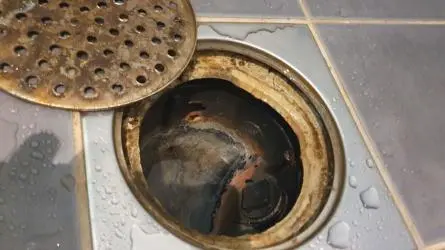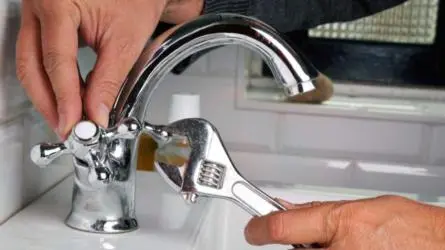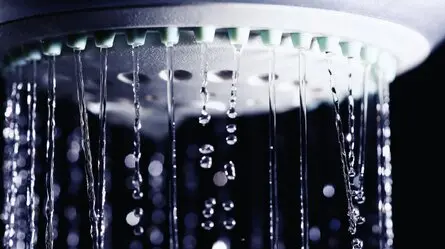One of the most frustrating experiences in the shower is standing in a pool of murky, soapy water, all due to slow drains!
If this sounds all too familiar, it’s likely there’s a clog in your shower drain. This blockage could be minor or, in some cases, a sign of a bigger issue with your main sewer line.
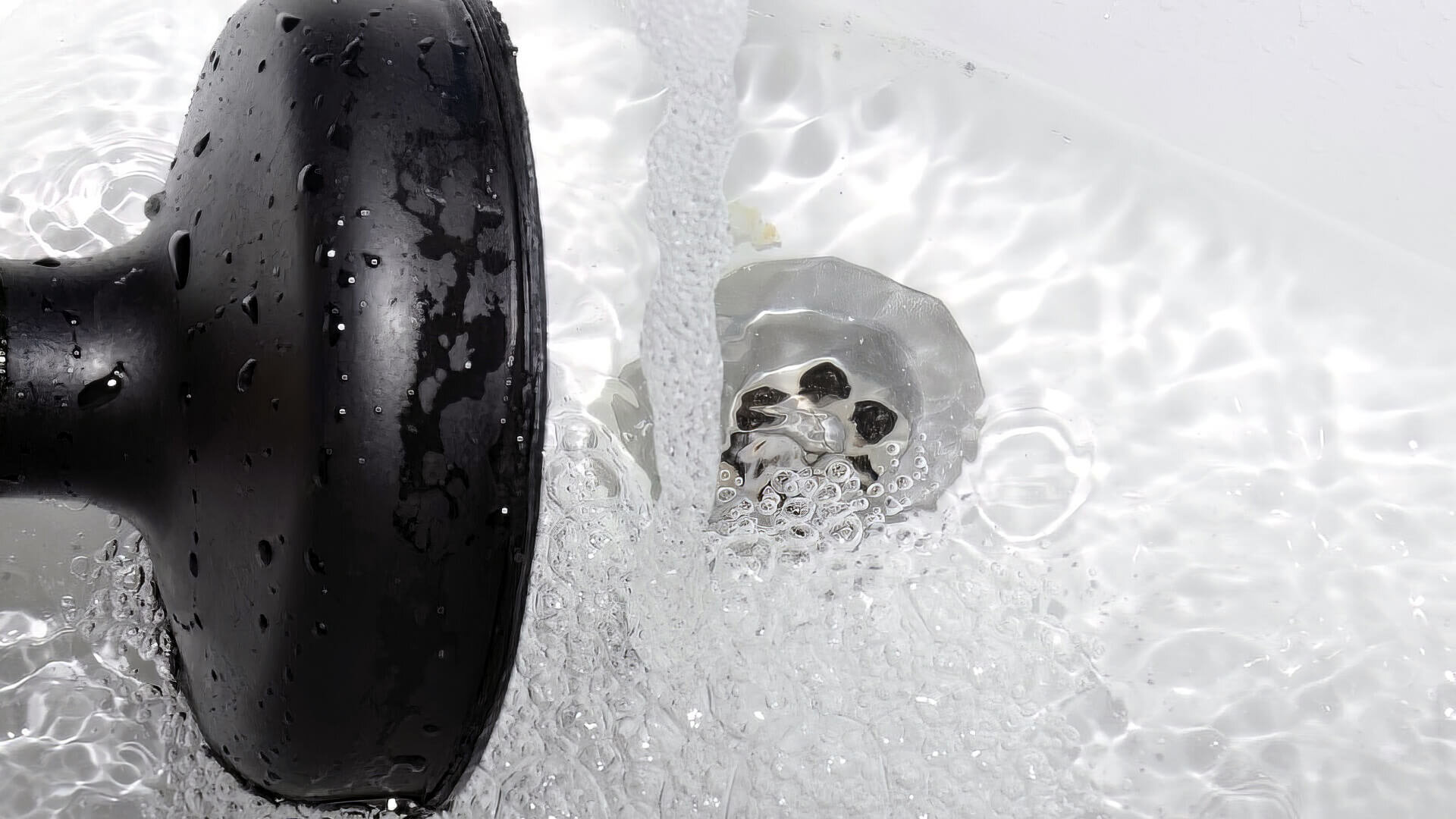
As soon as you spot the clog, it’s best to tackle it right away. We’ve outlined four simple steps designed to clear your drain and lessen the likelihood of future issues.
How To Know If Your Shower Drain Is Clogged
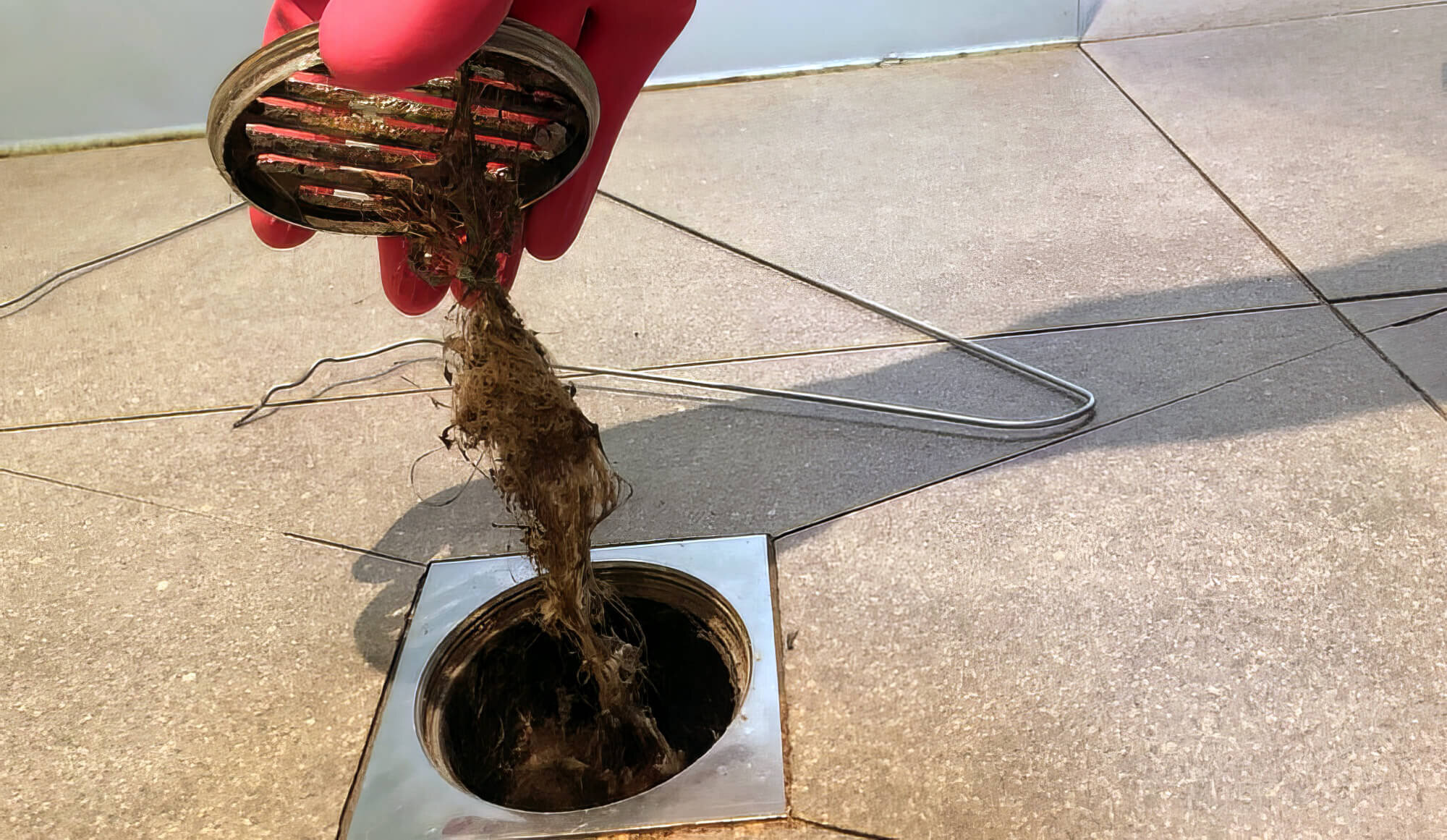
The main signs of your shower drain clogging or developing a clog are draining slowly and standing water in the shower after you’ve turned off the faucet. Another significant sign is if you notice an unpleasant odour from your shower drain before or after using the shower.
A shower drain clog is usually caused by the accumulation of debris like dirt and hair stuck inside the walls of the drain pipes.
Shower drains are usually manageable and do not pose a vital threat. However, if the drain clog is severe, it may result in your bathroom flooding or leaks from standing water seeping through the shower joints.
If there are voids in the shower grout or caulking, the standing water may also seep into the walls, causing severe damage or promoting mould growth.
What Causes Drain Blockages?
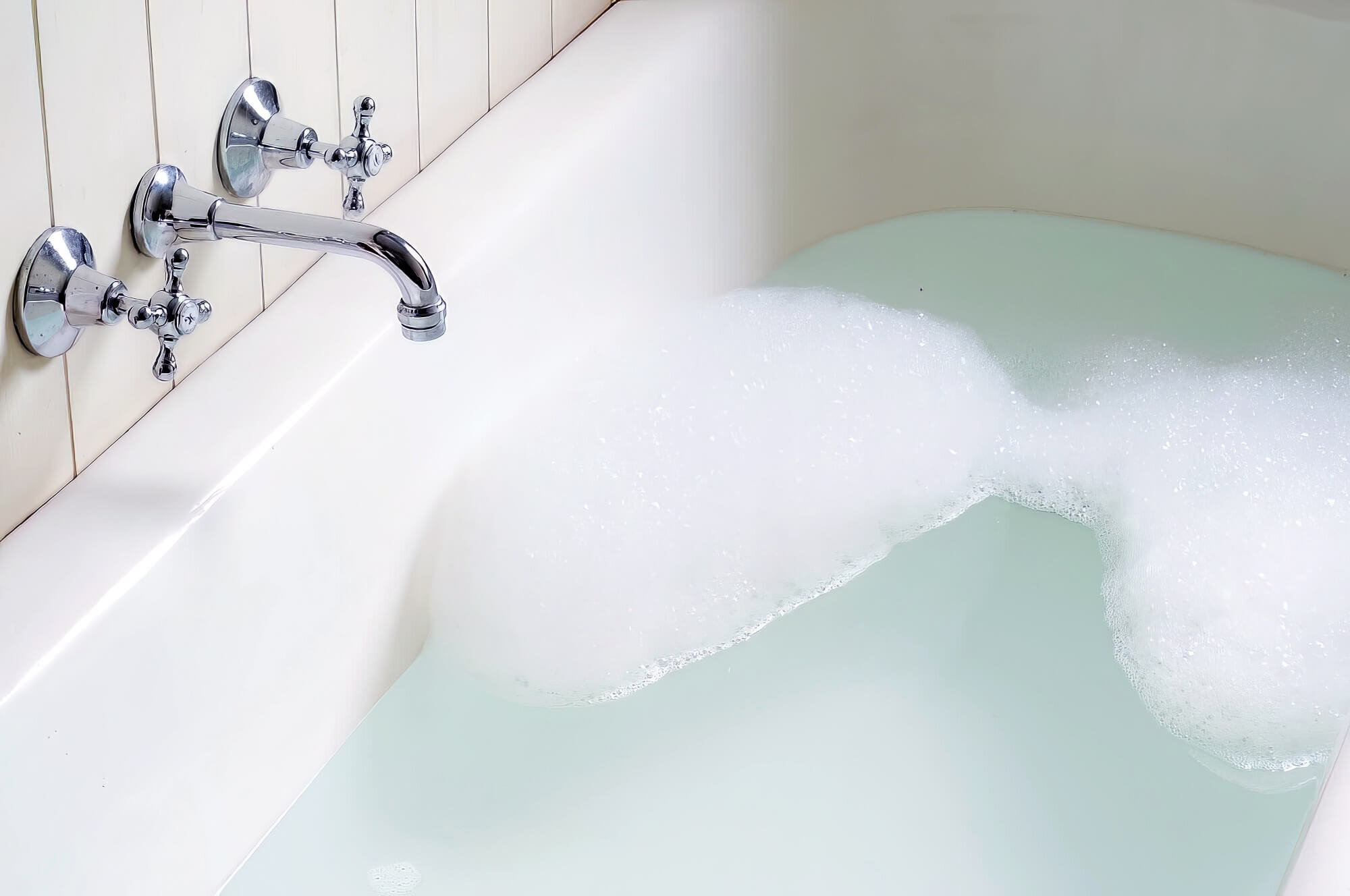
Several factors can disrupt your shower drain’s efficiency. A buildup of soap scum, dirt, and hair often leads to minor clogs. If you’ve got longer hair, the odds of strands clogging your drain increase significantly.
Soap makes matters worse by allowing the hair to stick to the shower drain pipes much easier than usual.
If your shower drain clogs keep returning, it might indicate a severe blockage within your primary plumbing system. Another prominent indication that the main pipes are blocked is if there is more than one clog in your home.
Steps To Fix A Slow Drain
Though shower drains can be cumbersome, their solutions and preventive measures are relatively straightforward. You can take several steps to ensure that your drain stays clear of any unwanted hair, dirt or soap scum build-up.
These tips work well for small blockages and regular maintenance, but they’re not suited for serious clogs in your main plumbing system. Trying to tackle severe clogs using these methods could lead to long-term damage, so it’s wise to call in a professional plumber for those situations.
With that said, let’s take a look at the steps that can help fix your slow shower drain problem:
1. Use Boiling Water
Pouring boiling water down your drain is a simple and effective way to clear out unwanted debris. It helps loosen soap scum, hair, and other gunk, flushing them away. Doing this weekly not only addresses current clogs but also helps prevent future blockages in your shower.
2. Use A Plunger
A plunger can effectively clear hair blockages in your drain. Using it creates better air suction, enhancing its effectiveness. For best results, regularly remove hair caught in the drain after each shower.
Using a plunger regularly can help avoid the build-up or hair within your shower drains. However, removing hair caught in the shower drain after each use is advised to lessen the chance of a clog.
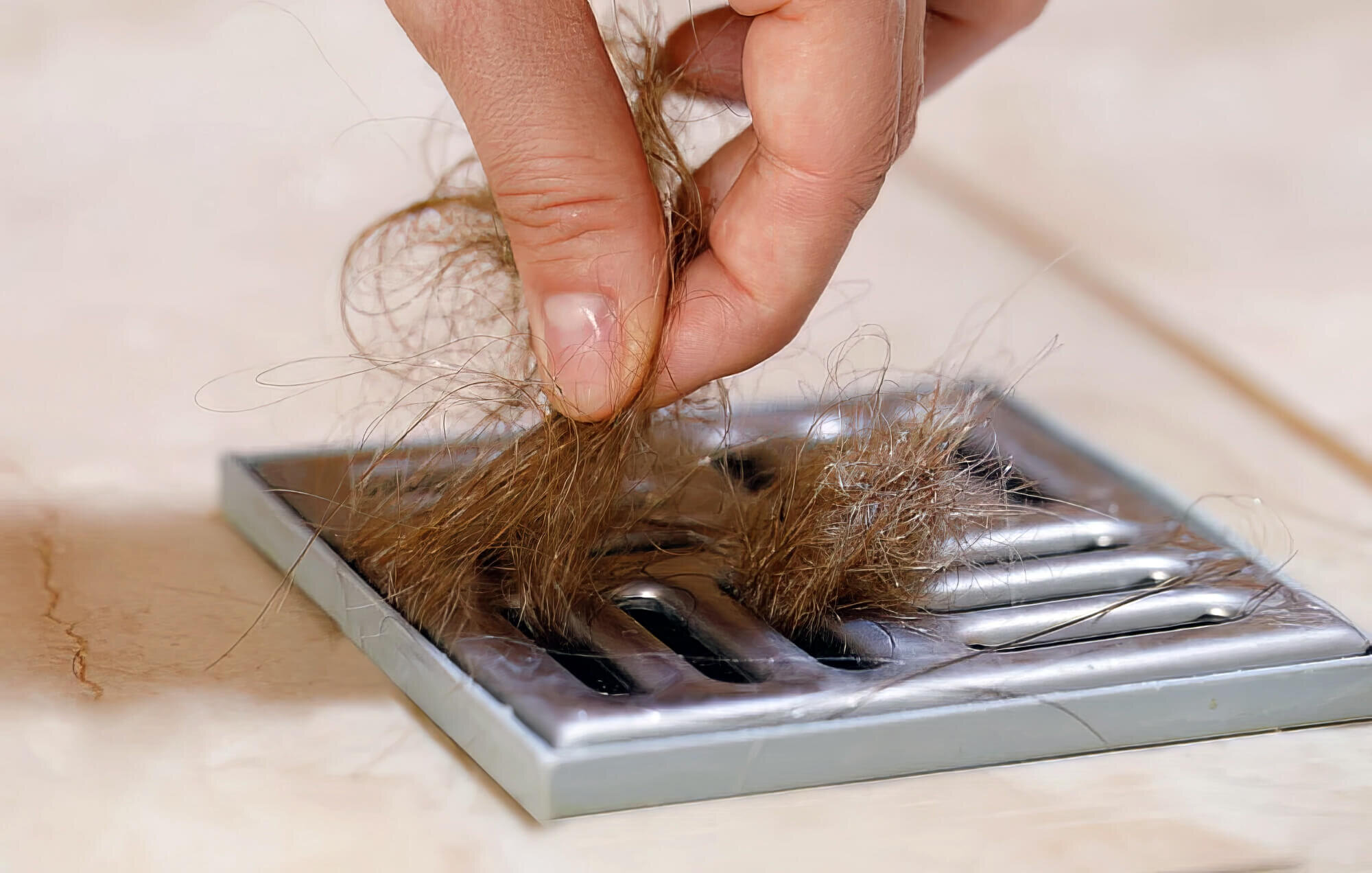
3. Use A Baking Soda And Vinegar Solution
Sometimes, the blockages can be much harder to remove with a plunger or boiling water. In such cases, using a solution of baking soda and vinegar can help dissolve stubborn clogs effectively.
Pour a generous amount of baking soda down the clogged drain. Give it a few minutes, after which you can take a cup of vinegar and pour it on the baking soda. Let the solution sit for a few hours, allowing it to dissolve clogs within the drain. Finally, rinse with boiling water to remove the remaining solution and gunk build-up.
4. Avoid Using A Chemical Drain Cleaner
People usually opt for chemical drain cleaners when they spot a drain pipe blockage. Although these cleaners seem quick and affordable solutions to clogged drains, they are far from sustainable alternatives.
These drain cleaners use harsh caustic chemicals that damage the drain pipes and shower fittings and seriously threaten your health. If the drain clogs don’t dissolve after multiple attempts using the tips mentioned above, you should call a professional plumber immediately to resolve the issue.
Fixing Your Slow Shower Drain
If your shower drain repeatedly clogs even after trying these fixes, it can indicate a problem with the main sewer line. If left unattended for long periods, it can cause a severe threat to the functioning of your home’s plumbing system.
In such events, contact the professionals at Woolf Plumbing & Gas, who possess 25 years of expertise in plumbing. We offer emergency plumbing services for unannounced issues and use the latest technology to clear blockages within your home’s plumbing system.


